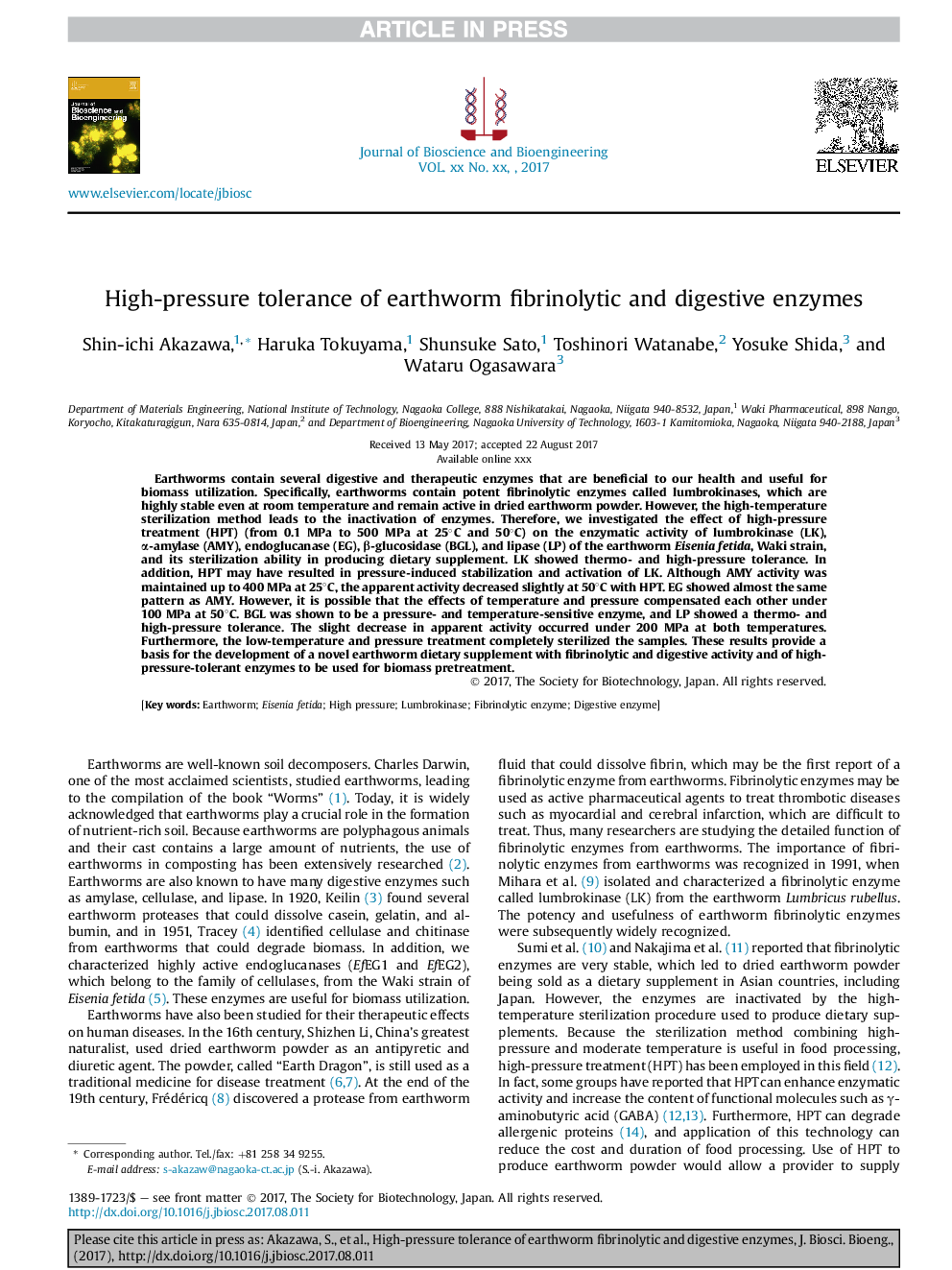| Article ID | Journal | Published Year | Pages | File Type |
|---|---|---|---|---|
| 6489955 | Journal of Bioscience and Bioengineering | 2018 | 5 Pages |
Abstract
Earthworms contain several digestive and therapeutic enzymes that are beneficial to our health and useful for biomass utilization. Specifically, earthworms contain potent fibrinolytic enzymes called lumbrokinases, which are highly stable even at room temperature and remain active in dried earthworm powder. However, the high-temperature sterilization method leads to the inactivation of enzymes. Therefore, we investigated the effect of high-pressure treatment (HPT) (from 0.1 MPa to 500 MPa at 25°C and 50°C) on the enzymatic activity of lumbrokinase (LK), α-amylase (AMY), endoglucanase (EG), β-glucosidase (BGL), and lipase (LP) of the earthworm Eisenia fetida, Waki strain, and its sterilization ability in producing dietary supplement. LK showed thermo- and high-pressure tolerance. In addition, HPT may have resulted in pressure-induced stabilization and activation of LK. Although AMY activity was maintained up to 400 MPa at 25°C, the apparent activity decreased slightly at 50°C with HPT. EG showed almost the same pattern as AMY. However, it is possible that the effects of temperature and pressure compensated each other under 100 MPa at 50°C. BGL was shown to be a pressure- and temperature-sensitive enzyme, and LP showed a thermo- and high-pressure tolerance. The slight decrease in apparent activity occurred under 200 MPa at both temperatures. Furthermore, the low-temperature and pressure treatment completely sterilized the samples. These results provide a basis for the development of a novel earthworm dietary supplement with fibrinolytic and digestive activity and of high-pressure-tolerant enzymes to be used for biomass pretreatment.
Related Topics
Physical Sciences and Engineering
Chemical Engineering
Bioengineering
Authors
Shin-ichi Akazawa, Haruka Tokuyama, Shunsuke Sato, Toshinori Watanabe, Yosuke Shida, Wataru Ogasawara,
